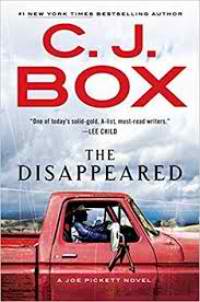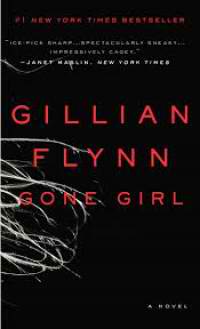The Crooked Staircase by Dean Koontz
 Monday, May 14, 2018 at 7:34AM
Monday, May 14, 2018 at 7:34AM 
Published by Bantam on May 8, 2018
The Crooked Staircase is the third novel in a series that pits former FBI agent Jane Hawk against the conspirators who not only caused her husband to commit suicide, but have developed mind-control nanotechnology that lets them kill as many people as they want, which turns out to be a large number. Their goal is to shape the country in their own image by doing away with people whose more tolerant opinions might become influential. This installment, like the first two, has Hawk chasing the bad guys while they are chasing her.
One of the weaknesses in the first two novels involved the bad guys’ failure to go after Jane’s obvious vulnerability, the son she hid with friends. Given the bad guys’ all-encompassing knowledge of everything, thanks to their control of the NSA and every other federal agency’s spy network, it didn’t seem to me it would be all that hard to find her son. Dean Koontz addresses that problem in this novel.
He also throws in a bunch of collateral characters, the most interesting of whom are two young writers from India who are viewed as a threat by the bad guys (or their threat-tabulating computer) because they are writing humanist literature that might catch on and persuade people treat each other decently, thus impeding the bad guys’ cutthroat notion of a utopian society. A less interesting character, who might play a bigger role in the next novel, is a stereotypical genius whose autism makes him social-phobic.
The biggest problem with this series (assuming that readers are willing to suspend disbelief of its unconvincing premise) is that Koontz has many more than the story really needs. The words are well chosen — there is no question that Koontz is capable of crafting exquisite sentences, and reading his books is always a linguistic pleasure — but this is the kind of novel that depends on pace, and the pace slackens too much for my taste as, for example, we are lectured about the influence of the Greek Furies upon one of the writers. Koontz also tends to use Hawk and other characters to engage in philosophical discussions about the human condition, usually by lamenting the direction in which humanity is headed. That works well in a different kind of novel (it worked very well in Koontz’s The City), but it doesn’t work in a conspiracy thriller that depends on action and pace to sustain the story. I can’t say that wordiness is a big distraction, but there are too many eloquent philosophical passages in the novel that seem to have been included for the sake of showcasing eloquence or philosophy rather than advancing the plot.
And the plot really does need advancing. My understanding is that Koontz intends to tell this story over at least five books. A standard conspiracy thriller doesn’t merit five books. I don’t know what more is to come, but my suspicion is that the story could easily be compacted into a trilogy. Parts of this novel seems like filler, with extended chase scenes and some collateral stories involving characters who are introduced and thrown away. Some of that content could have been excised with no loss of value.
I give Koontz credit for not contriving a happy ending for every character. And I give him credit for working in several peaks of suspense as the story moves along. Koontz occasionally indulges in a bit of pop psychology of the sort that appeals to thriller writers — a sociopath is trying to punish his mother by serially punishing and killing women who look like his mother — and that I expect to encounter in bad novels about profilers. The evil mother who shaped the key villain in this volume is completely over the top. Other characters are more credible, but again, none of the characters match Koontz’ best work.
The ending isn’t exactly a cliffhanger, but it’s close, as one would expect of each novel in a five novel series. I’ll keep reading because Koontz is a gifted wordsmith and the story isn’t dull. So far, however, the story isn’t particularly original or thrilling, and I fear it’s losing steam.
RECOMMENDED



